There are currently 200,000 migrant domestic workers in Lebanon, a small country of four million. Maids save on rent, bills, and food costs living with their employers.
Caritas Migrant Center, an NGO which aids and shelters maids who have run away from their employers, are receiving between three and six cases of abuse per day, from abuses that range from rape, physical violence, trafficking and starvation.
Human Rights Watch in 2008 reported that "domestic workersare dying in Lebanon at the rate of one a week". There is no law to protect migrant workers in Lebanon. On arrival, most domestic workers are confined to the house, and their passport confiscated. When they escape their employer's home, they become an illegal resident in the country, due to the sponsorship system that operates in the country.
These women play a pivotal role in the operation of private homes: as cooks, nurses, carers and cleaners.
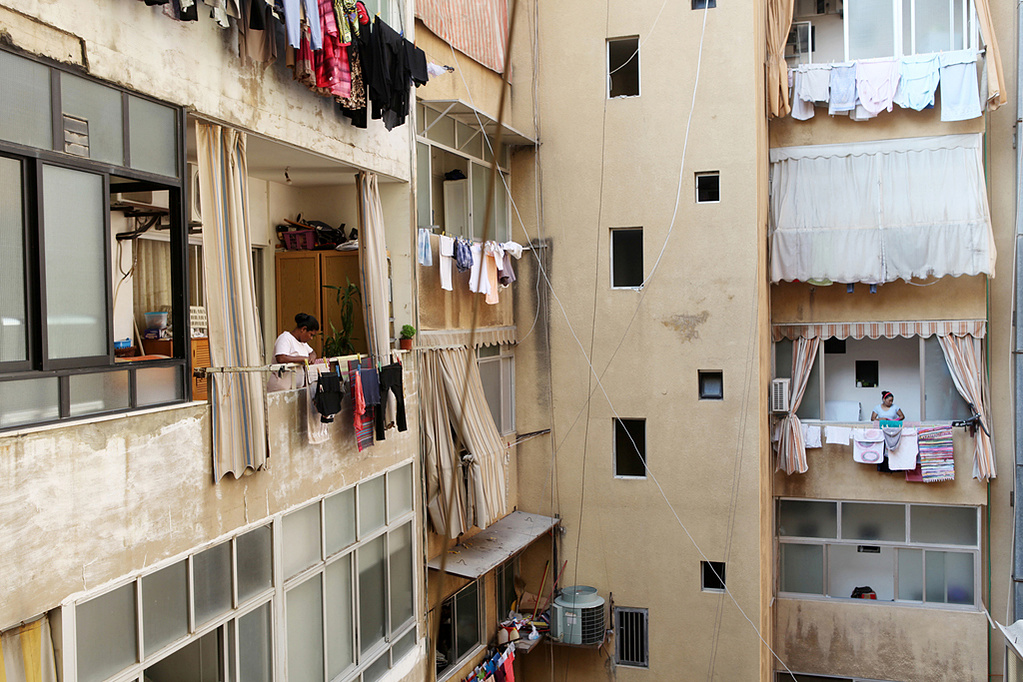
Two maids in their employers homes, Beirut, Lebanon
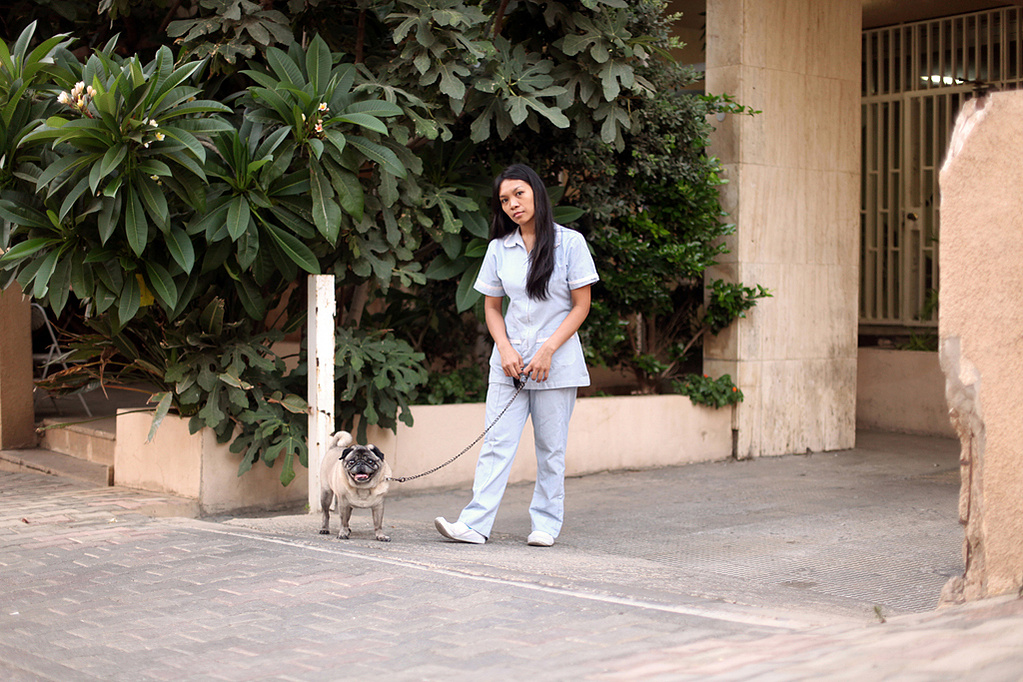
Miles, 25, a migrant domestic worker from the Phillipinnes walks her employer's dog in front of their apartment building in Beirut, Lebanon. She wants to extend her contract with her employer because she says she is "so happy" working at the family home and feels really lucky to have such a job and be included in their family. Miles cooks, cleans, and takes care of the home.
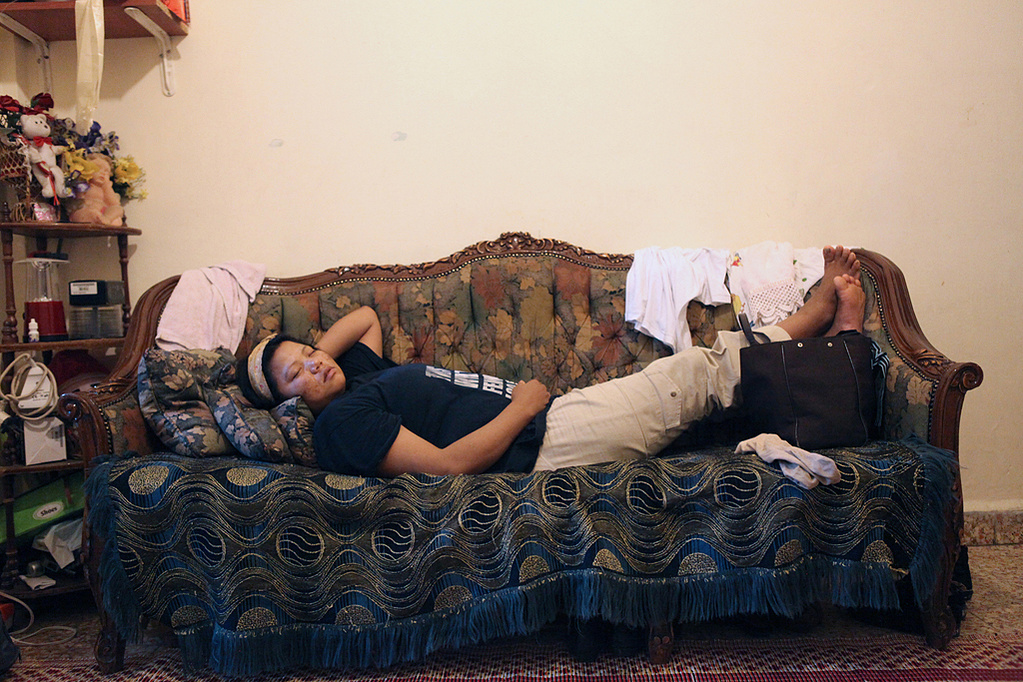
"Gita", 25, from Nepal, who has run away from her employer, sleeps on a couch, which she is using as a bed. She lives with six other Nepalese women in a one bedroom flat on the outskirts of Beirut, Lebanon. She has three children in Nepal. Her employer strangled her because Gita couldn't understand Arabic, she ran away and now works as a cleaner in a university.
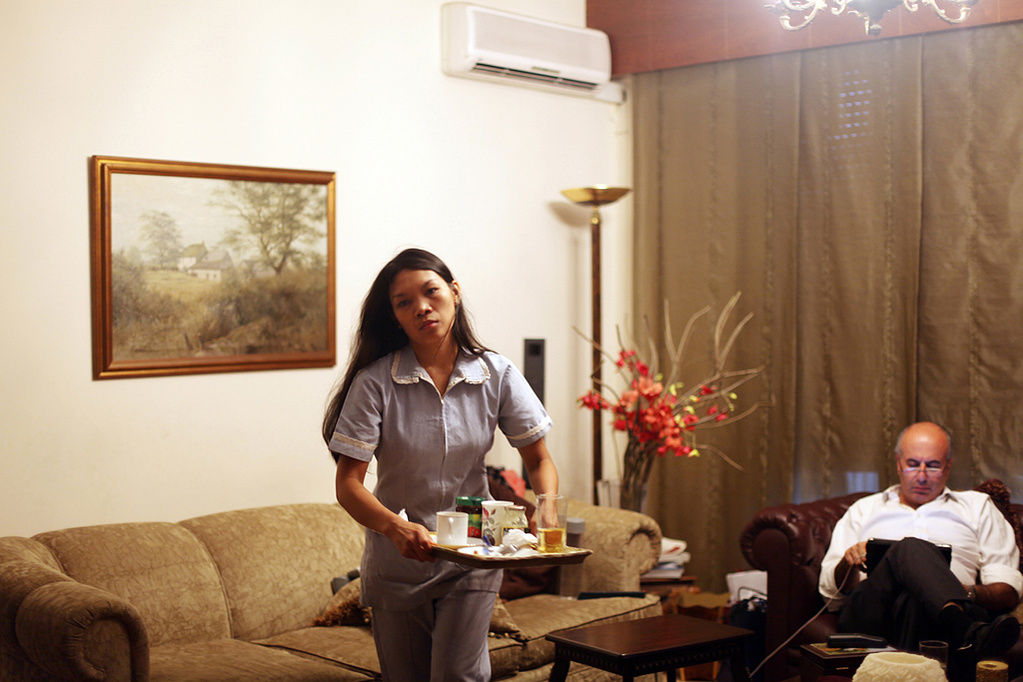
Miles, 25, a migrant domestic worker from the Phillipinnes takes the dishes back to the kitchen, in her employer's family home in Beirut, Lebanon. She wants to extend her contract with her employer because she says she is "so happy" working at the family home and feels really lucky to have such a job and be included in their family. Miles cooks, cleans, and takes care of the home.
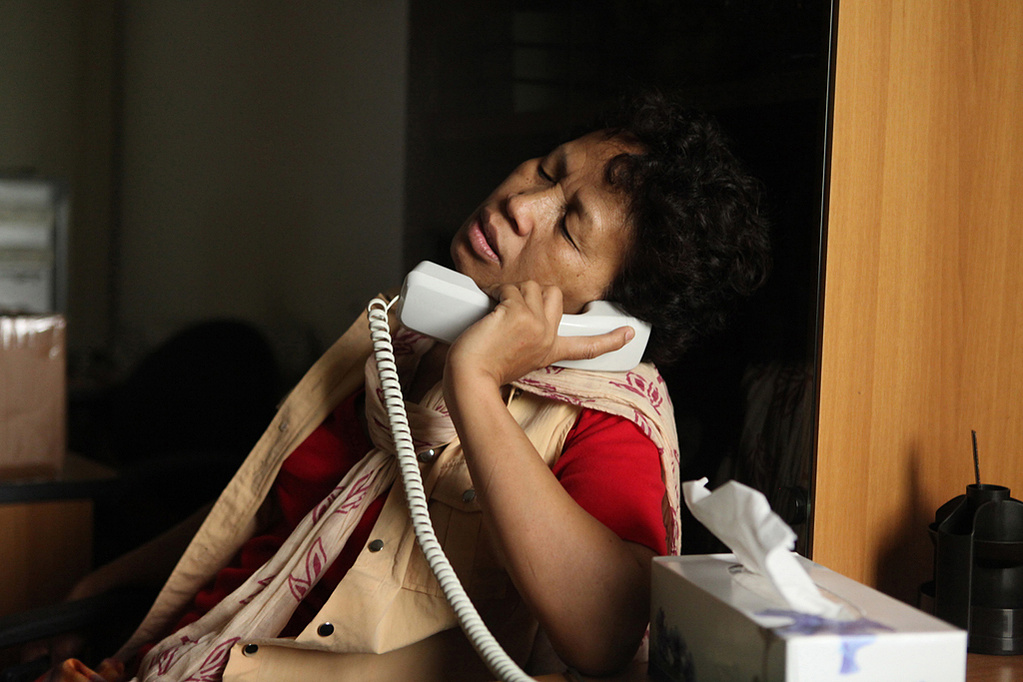
Aimee, from Madagascar has been living in Lebanon for 14 years. After working as a domestic maid in Beirut, she decided to help girls who were being abused/ trying to run away from their employers. Here, she receives a phone call from a girl regarding migration papers.
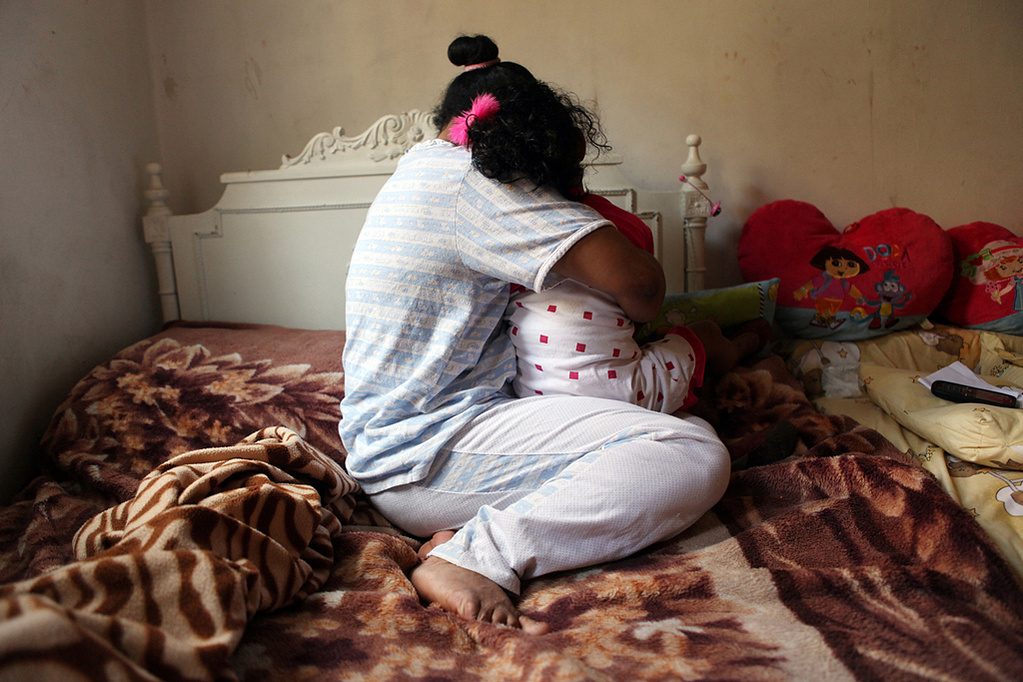
"Maria", 40, came to Lebanon in 1996, she dreamt of being a doctor, and was told she would be working with old people, and orphans, she was never told about housework and was given the contract to sign in the airport. She had three consecutive bad homes, a range of abuses were taken place between the recruitment agencies and the employers, including no fixed working hours, being forced to work 21 hour days, seven days a week, she was starved, beaten, and had her letters from home hidden away from her. When she eventually left the third home, she met her Madagascan husband and married him in Madagascar, and returned to Lebanon as he had work there. She now has a four year old daughter and is working with a new family (does not live with them), and is happier, but misses her home country.
"Maria", a Madagascan migrant domestic worker watches her 3 month old baby go to sleep at her home in Beirut, Lebanon.
"Maria", 40, came to Lebanon in 1996, she dreamt of being a doctor, and was told she would be working with old people, and orphans, she was never told about housework and was given the contract to sign in the airport.
She had three consecutive bad homes, a range of abuses were taken place between the recruitment agencies and the employers, including no fixed working hours, being forced to work 21 hour days, seven days a week, she was starved, beaten, and had her letters from home hidden away from her.
When she eventually left the third home, she met her Madagascan husband and married him in Madagascar, and returned to Lebanon as he had work there. She now has two children and is working with a new family (does not live with them), and is happier, but misses her home country.
Fanery, 4, daughter of "Maria", a Madagascan migrant domestic worker on the way home.
"Maria", 40, came to Lebanon in 1996, she dreamt of being a doctor, and was told she would be working with old people, and orphans, she was never told about housework and was given the contract to sign in the airport.
She had three consecutive bad homes, a range of abuses were taken place between the recruitment agencies and the employers, including no fixed working hours, being forced to work 21 hour days, seven days a week, she was starved, beaten, and had her letters from home hidden away from her.
When she eventually left the third home, she met her Madagascan husband and married him in Madagascar, and returned to Lebanon as he had work there. She now has two young children and is working with a new family (does not live with them), and is happier, but misses her home country.
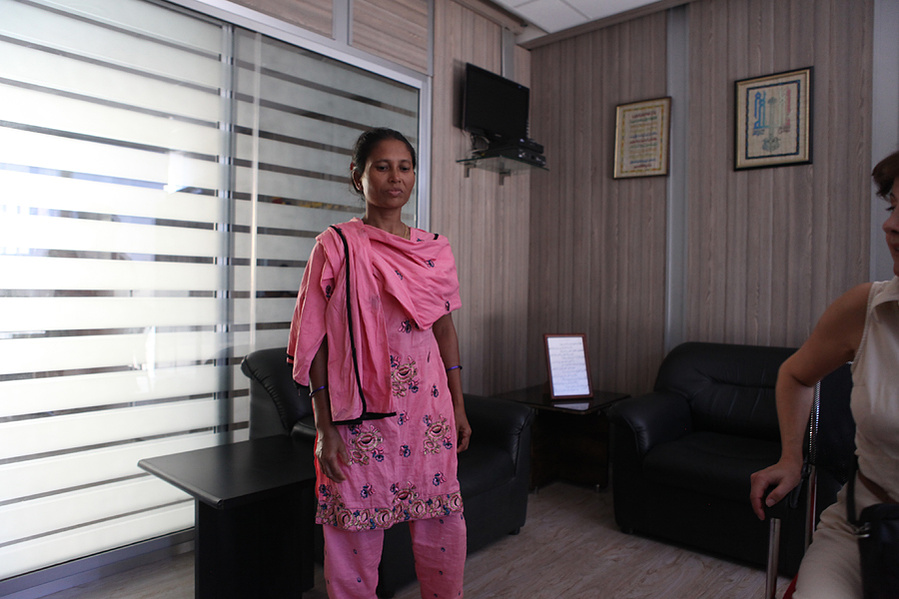
Manjo, from Bangladesh, stands in a maids recruitment agency office in Beirut, Lebanon. Before she entered the room to stand infront of a client, the recruiter said, "you don't want this one, she's useless. She doesn't know anything. She doesn't speak Arabic or English".
She was forced to remove her head scarf several times,infront of this possible client.
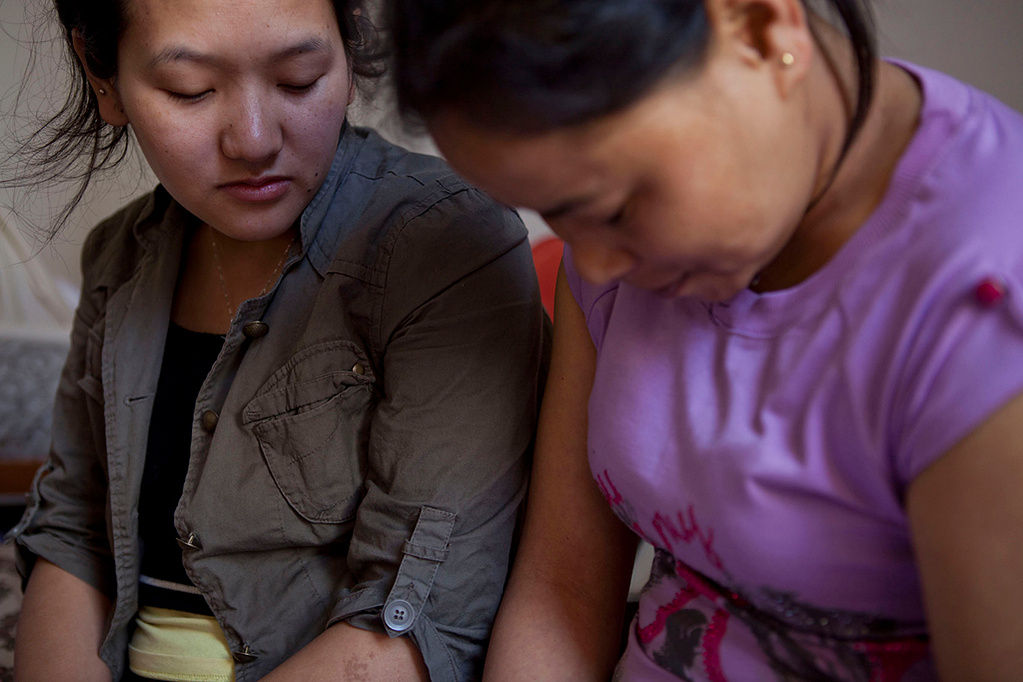
Nania (L) comforts Tara from Nepal, who has run away from her employers home as a domestic maid. She worked seven days a week and had only three hours of sleep a night before she started work again. While she was putting laundry out to dry one day, she decided to jump from the second floor of the residential building , to run away as she was locked inside the house. She walked for four hours from Zahle, the mountains of Lebanon, to Beirut to find help. After receiving a phone call from a man who called the Nepalese consulate, Nania took Tara into her home before she was transferred to a shelter.

A shop window which sells maids uniforms in Beirut, Lebanon
Pooja, from Nepal, lies on her bed which she shares with her friendin Beirut, Lebanon. Seven young Nepalese ladies live together after running away from their employers. Although she was treated well, Pooja ran away from her employer, after she was told by another migrant domestic maid that she would earn more money working outside of the home illegally. She now works illegally as a cleaning lady in a university and regrets leaving her employer, she misses her employers' family.
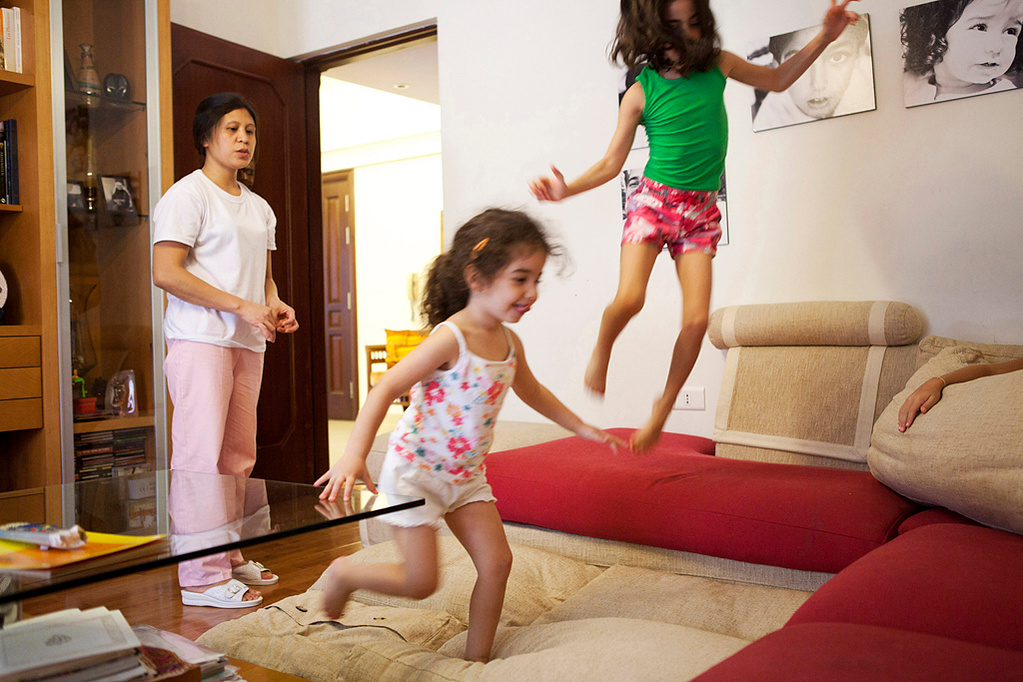
Jane, a housemaid from the Phillipines watches Sara and Alia at her employer’s family home in Bchamoun, Lebanon.Jane has worked for the Abdel Baki family for six years, “I treat them like my children. As long as I can send money to my family I will work, my eldest son is in secondary school, I want him to graduate.” Her eyes welled up with tears when she began talking about her own children. Rana, Jane’s employer and mother of three children, says “we are lost without Jane, I used to forget my medicines when she wasn’t around, everything is perfect when she’s here. We give her bonuses and gifts, we can’t thank her enough for what she does around here. When she came back from the Phillipines, the whole family rushed to her to welcome her back”.
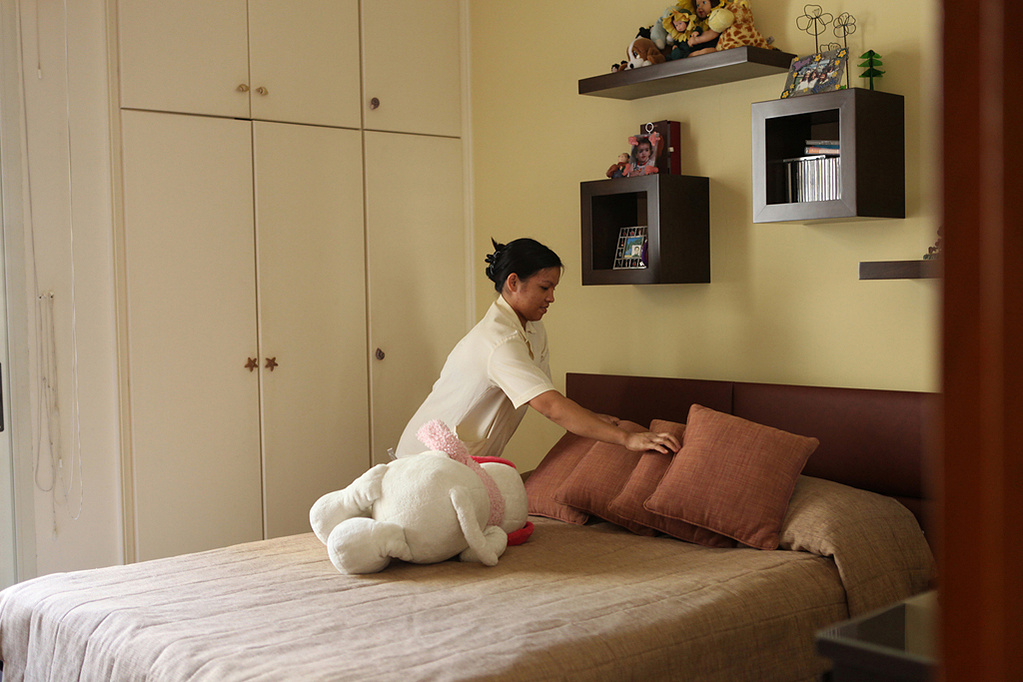
Sabina, from the Phillipines, tidies up her employer's daughter's bed at their family home in Beirut, Lebanon.
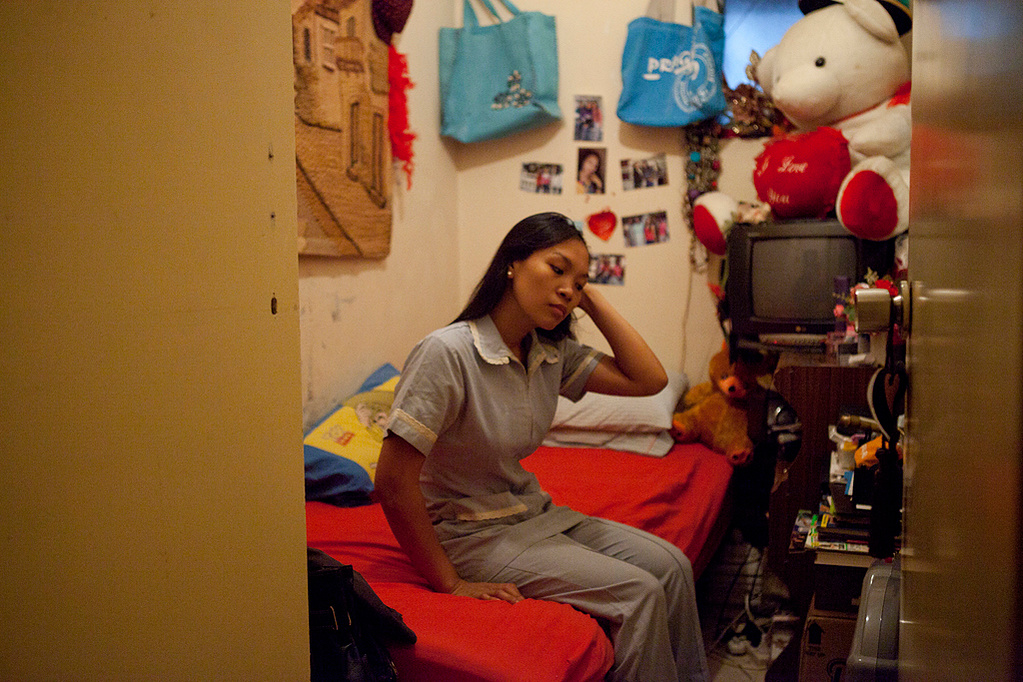
Miles, 25, a migrant domestic worker from the Phillipinnes sits on her bed at her employer's home in Beirut, Lebanon.
She remembers her family in her country. She wants to extend her contract with her employer because she is so happy working at the family home in Beirut, Lebanon and feels really lucky to have such a job and be included in their family. Miles cooks, cleans, and takes care of the home.
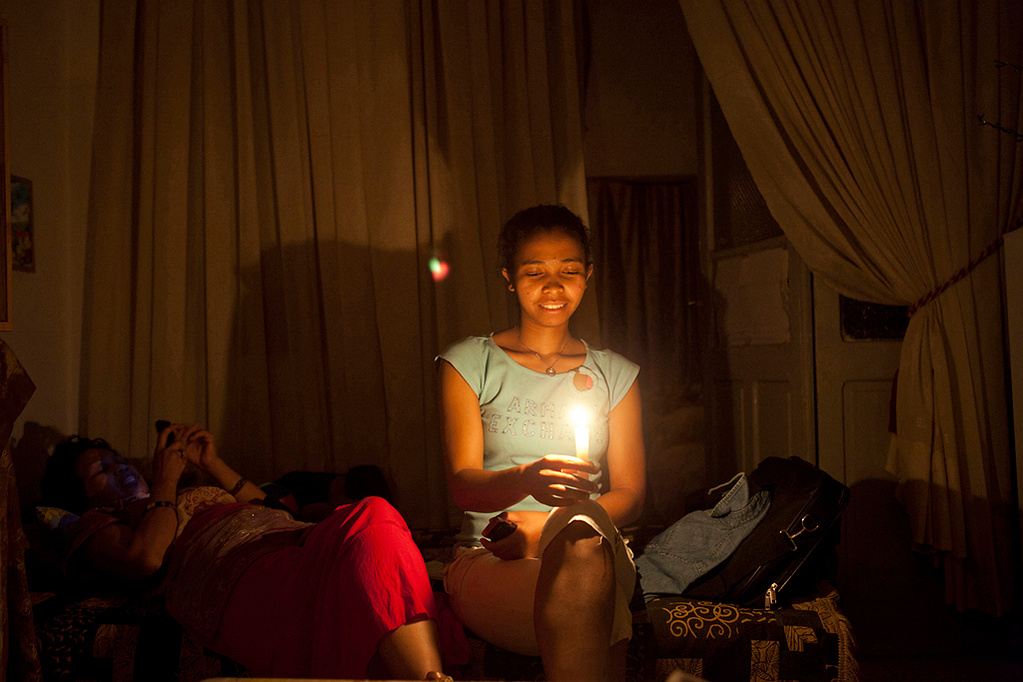
Cynthia sits in a room after she had a meeting with Aimee, (lying down), she ran away from her employers home because she was told by another maid that she would earn more living illegally outside and working. She was not abused and was treated very well by her employer. She regrets leaving.
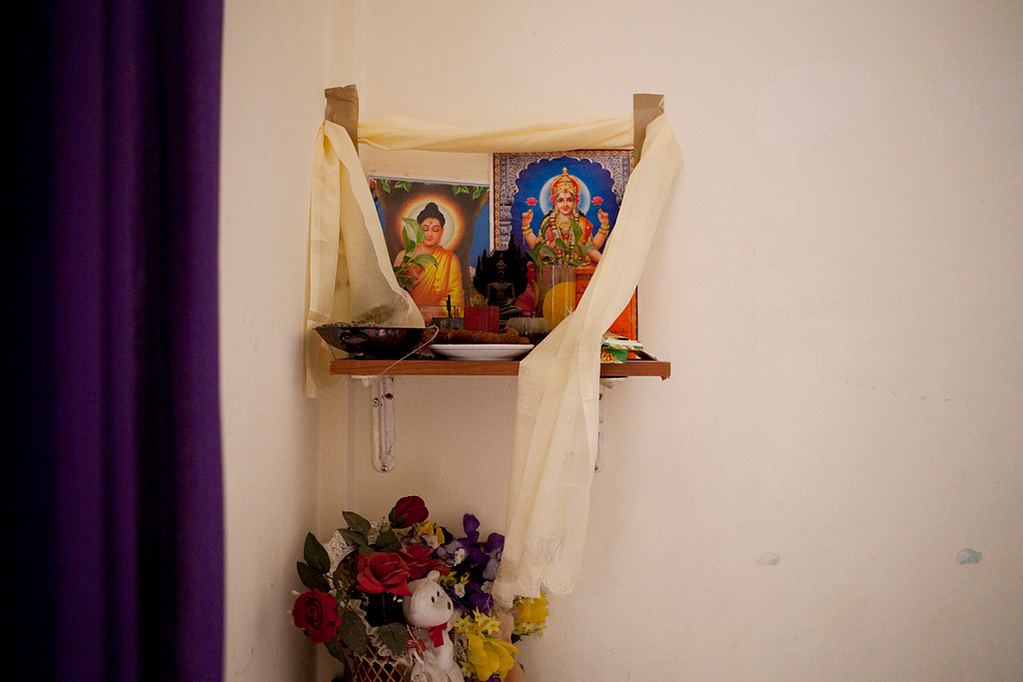
Part of the one bedroom flat on the outskirts of Beirut where Seven young Nepalese ladies who live altogether all have their own stories of why and how they ran away from their employer
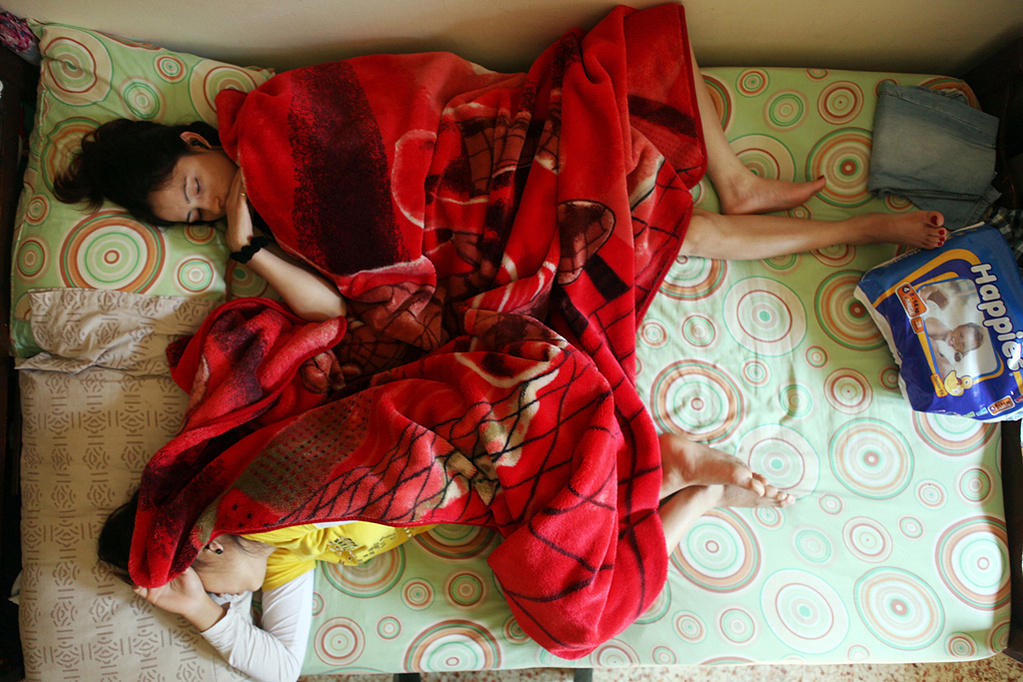
Two Nepalese ladies sleep in one bed, the flat they live in has seven Nepalese ladies living altogether. They have all left their employers homes and are all desperate to go back home to Nepal, they are all struggling to due to high rent and electricity bills. They are sexually harrassed in their area as Nepalese have a reputation for being prostitutes. These ladies work as cleaners in universities and schools.
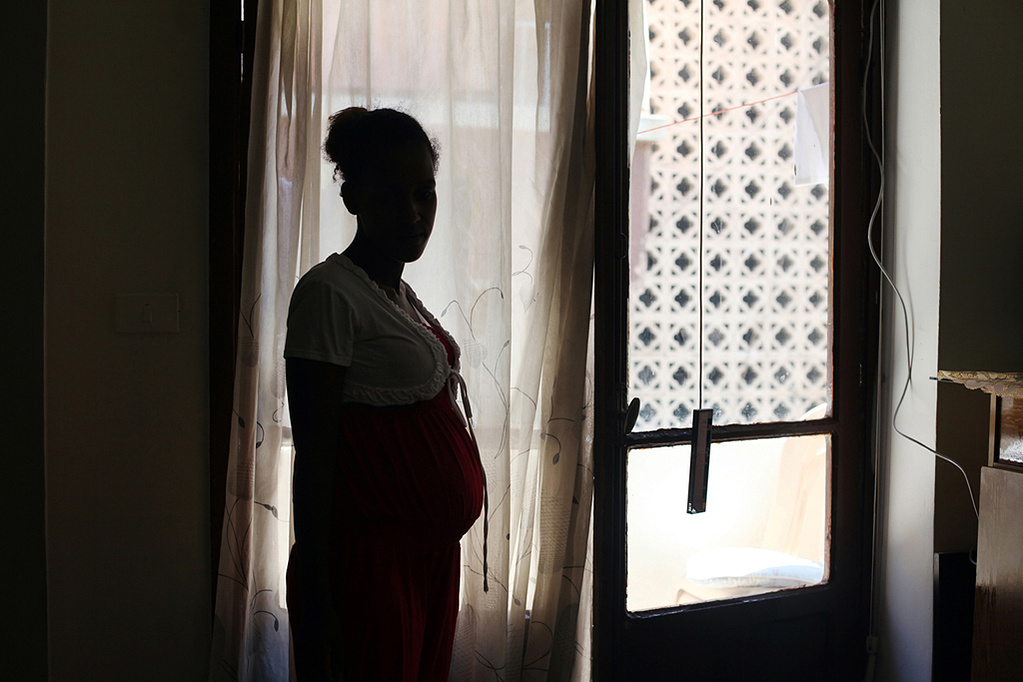
Sara, 21, from Ethiopia has been drug-raped by her employer when she was unconscious. When she woke up at 10am the next morning shocked, as she usually wakes up at 6am, the husband of the family who raped her, beat her shouting, "you told me you were a virgin, you lied"
She went up to the rooftop of the apartment building to jump where a Sri Lankan maid on the floor below her talked her out of committing suicude and gave her a ladder to come down. She ran away from the apartment and sought refuge in another Ethiopians home. She is now 8 months pregnant with her employer's child.
When speaking to the Ethiopian embassy, they told her she could "have the baby and work illegally (as her papers are in her previous employers home) just like the other 70,000 illegal Ethiopians living and working in Lebanon" Whilst spending nine months with this family, being beaten up by the hudband, she was not allowed out of the family home. She was not allowed to wear pyjamas and was forced to sleep in her maids uniform.
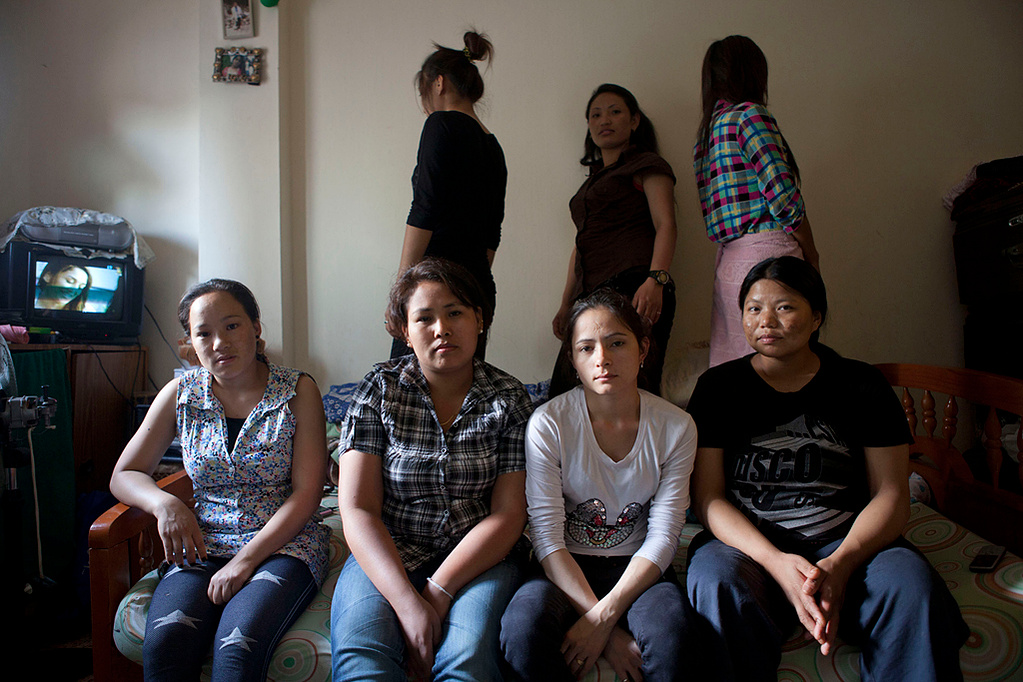
Seven young Nepalese ladies who live altogether in a one bedroom flat on the outskirts of Beirut all have their own stories of why and how they ran away from their employer.
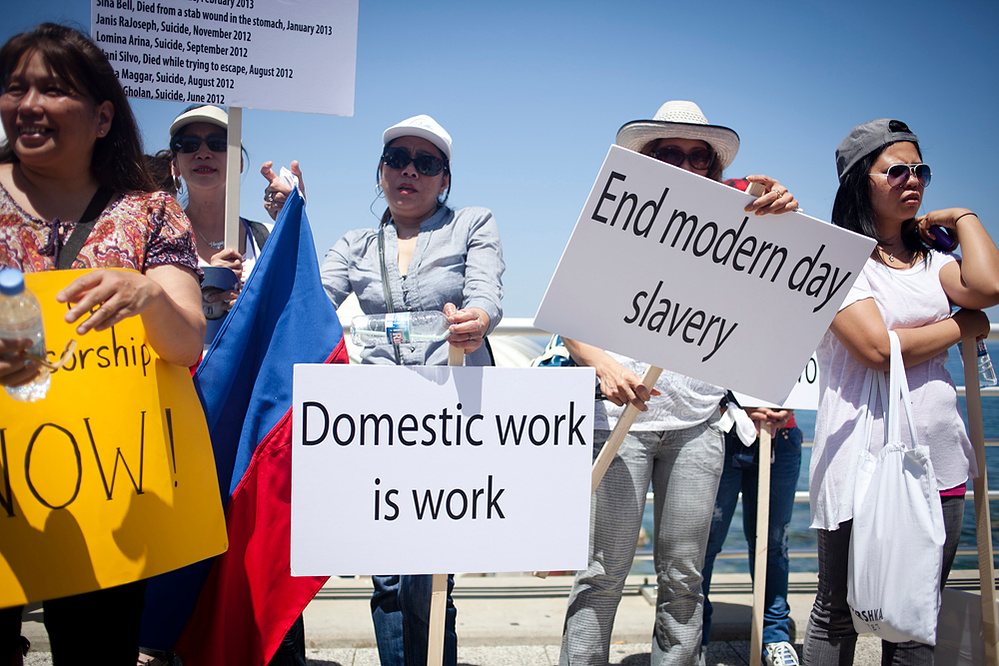
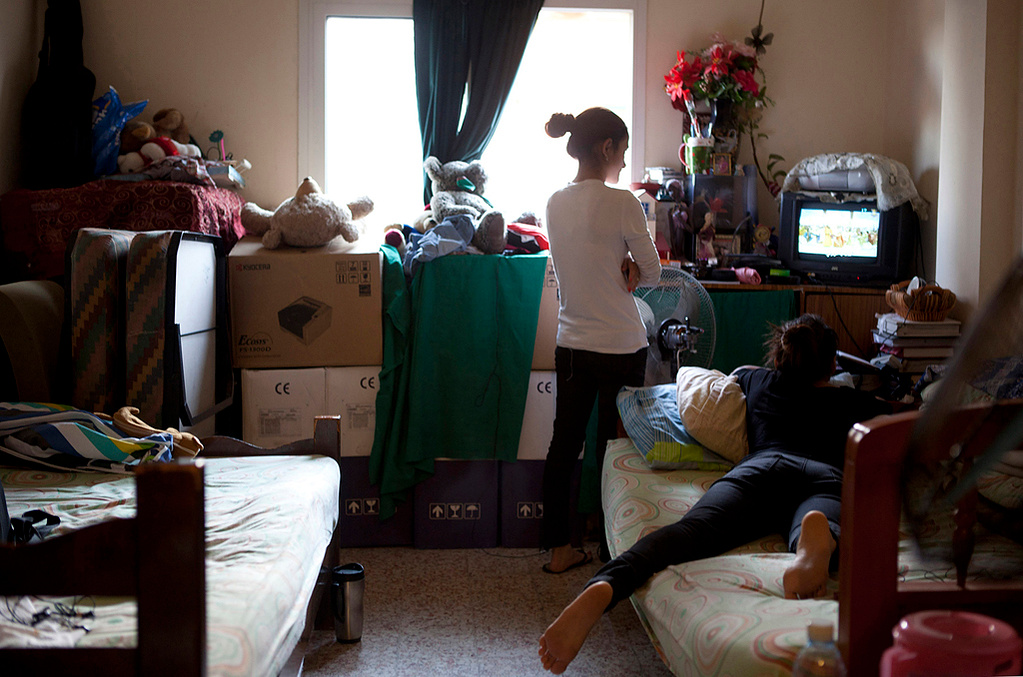
Two of the seven Nepalese young ladies who ran away from their employers, who live together watch television in their one bedroom flat on the outskirts of Beirut, Lebanon.
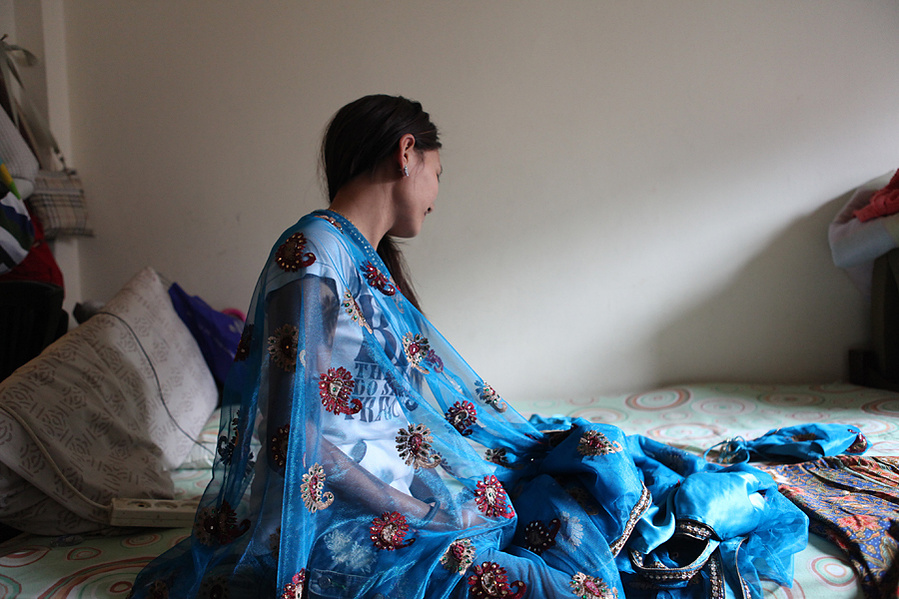
Poonam, 23 from Nepal, sits on her bed on the outskirts of Beirut, Lebanon.
She had no days off when working for a family in Beirut, and was told by another Bangladeshi maid she would earn more money working illegally, she now cleans a university
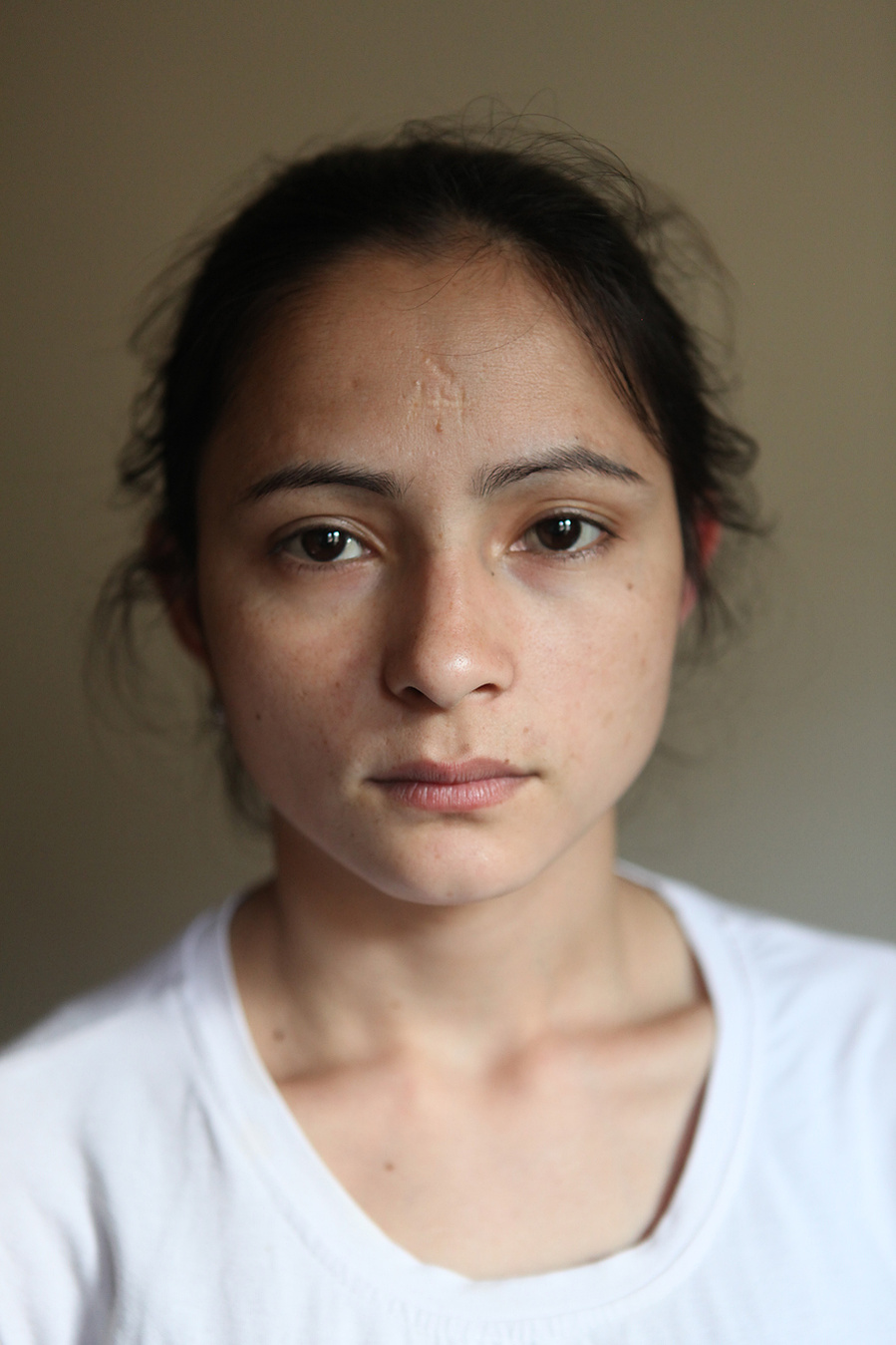
Pooja, from Nepal, lies on her bed which she shares with her friend. Seven young Nepalese ladies live together after running away from their employers. Although she was treated well, Pooja ran away from her employer, after she was told by another migrant domestic maid that she would earn more money working outside of the home illegally.
She now works illegally as a cleaning lady in a university and regrets leaving her employer, she misses her employers' family.
Migrant domestic workers have a picnic in Tannourine, Lebanon.
The Migrant Community Center in Beirut arranges days out for the migrant workers to get to know Lebanon more.
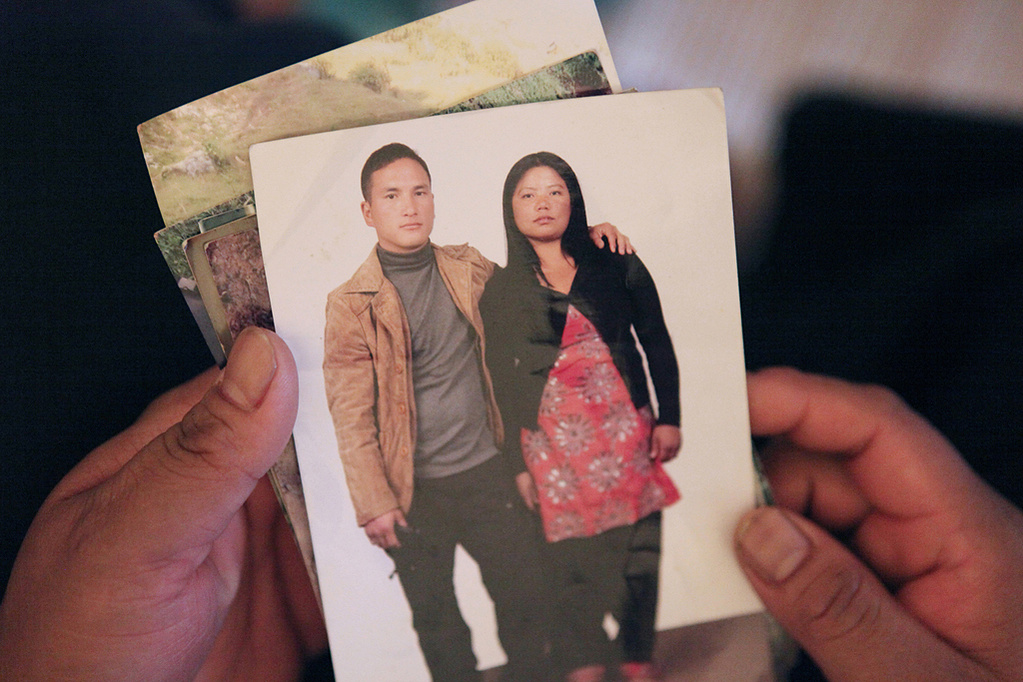
"Gita", 25, from Nepal, looks at a photograph of her husband and her. She lives with six other Nepalese women in a one bedroom flat on the outskirts of Beirut, Lebanon. She has three children in Nepal. Her employer strangled her because Gita couldn't understand Arabic, she ran away and now works as a cleaner in a university.
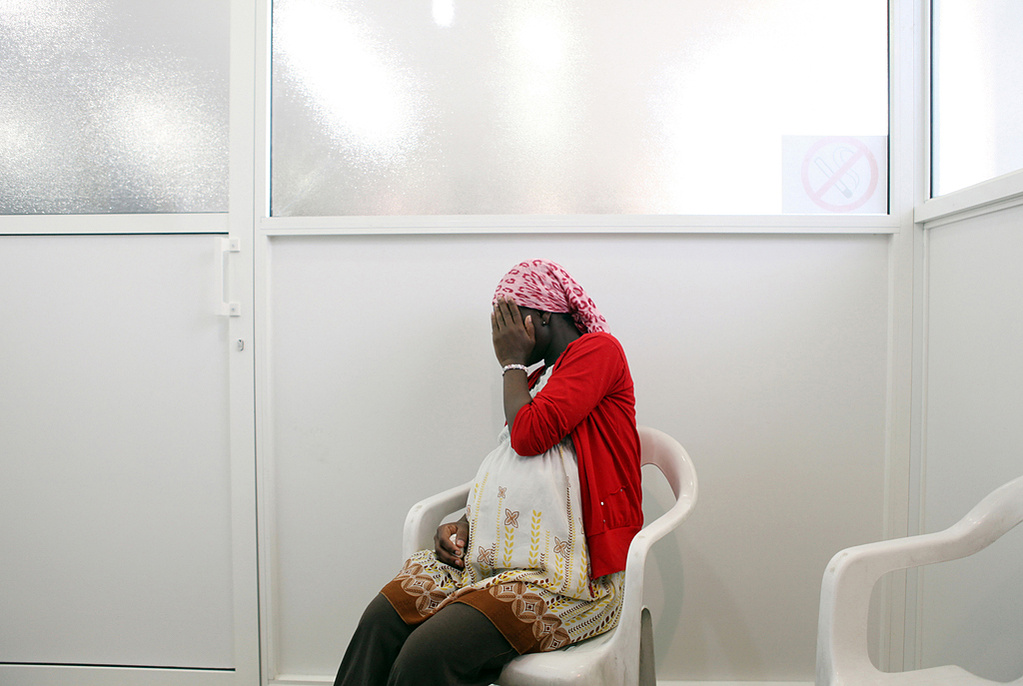
Najat, 23, from Ghana, sits in an interview room at the Caritas Migrant Center in Lebanon. Her dream was to become a teacher, but her father could not afford her university fees. She came to work in Lebanon as a domestic maid, whilst living at her employers family home, the husband raped her twice, after his wife left to work. "Madam asked me why I was crying every day. I couldn't tell her 'your husband raped me' ". She ran away to Caritas and is now 9 months pregnant with his child.